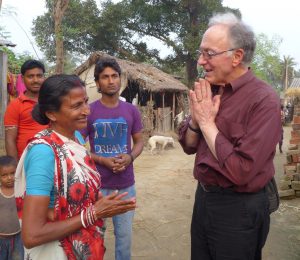India Studies Hosts the Annual Radha Devi Joshi Lecture that brings distinguished speakers to the University of Connecticut who address important issues of global significance
2022, March 23|| Radha Devi Joshi Lecture in India Studies: David Szanton, President, Ethnic Arts Foundation, “Mithila Art, The Vital Tradition”
Wednesday, March 23rd 3:30-5:00PM via Zoom
Zoom link: Register in advance for this webinar: https://us06web.zoom.us/webinar/register/WN_bJUvUyJjRq-1jurT4mo0QQ
Abstract: As an anthropologist having done research in New York, Cambridge (Massachusetts), Rome, the Muslim Philippines, and since 2002 among the Mithila painters in Bihar, India, David Szanton has been fascinated by the ways that art forms are shaped by, give shape to, express and critique the evolution of their surrounding societies. In that context, Szanton will speak about the importance of grasping the multiple and constantly shifting views of what is deemed important and true in societies other than one's own; what makes sense, what is obvious, what is moral, or outside one’s own formation.
Co-sponsored by the India Studies Program and Asian and Asian American Studies Institute at UConn.
Speaker bio: David Szanton is a social anthropologist with a long-standing interest in art and society. He worked for many years at the Ford Foundation and the Social Science Research Council before coming to the University of California, Berkeley, where he served as the Executive Director of International and Area Studies. A co-founder of the Ethnic Arts Foundation, and its President since 2002, he has published extensively in India on Mithila painting, curated many exhibitions, and helped found the Mithila Art Institute in an effort to gain recognition and appreciation for the painting tradition, and art and life sustaining income for the artists in rural Bihar. He received his Ph.D. in Anthropology from the University of Chicago.
2021, March 5 / Kalpana Kannabiran, Feminist Sociologist, Legal Researcher and Human Right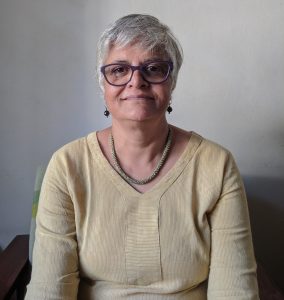 s Campaigner / INSURGENT REALISMS AND IDEAS OF JUSTICE IN INDIA: IMAGINING THE ‘CORRUPTION COMPLEX’ THROUGH LAW AND LITERATURE / Online VIA WebEx
s Campaigner / INSURGENT REALISMS AND IDEAS OF JUSTICE IN INDIA: IMAGINING THE ‘CORRUPTION COMPLEX’ THROUGH LAW AND LITERATURE / Online VIA WebEx
Kalpana Kannabiran is a feminist sociologist, legal researcher and human rights campaigner. Based in Hyderabad, India, she co-founded Asmita Resource Centre for Women in 1991, was on the founding faculty of NALSAR University of Law (1999-2009), and is Professor and Director, Council for Social Development, Hyderabad, a position she has held since March 2011. Author of Tools of Justice: Non-discrimination and the Indian Constitution (2012), among others and editor of several collections, her interdisciplinary writing straddles law, gender studies, literature, and human rights, among others.
2017, October 26 / Karuna Mantena, Associate Professor of Political Science and Chair of the South Asian Studies Council at Yale University / Title of Talk to be Announced / Arjona Lecture Hall Room 105
 KARUNA MANTENA is Associate Professor of Political Science at Yale University. She holds a BSc(Econ) in International Relations from the London School of Economics (1995), an MA in Ideology and Discourse Analysis from the University of Essex (1996), and a PhD in Government from Harvard University (2004). Her research interests include modern political thought, modern social theory, the theory and history of empire, and South Asian politics and history.
KARUNA MANTENA is Associate Professor of Political Science at Yale University. She holds a BSc(Econ) in International Relations from the London School of Economics (1995), an MA in Ideology and Discourse Analysis from the University of Essex (1996), and a PhD in Government from Harvard University (2004). Her research interests include modern political thought, modern social theory, the theory and history of empire, and South Asian politics and history.
Her first book, Alibis of Empire: Henry Maine and the Ends of Liberal Imperialism (Princeton Univ. Press, 2010), analyzed the transformation of nineteenth-century British imperial ideology. Her current work focuses on political realism and the political thought of M.K. Gandhi.
Since 2011, Professor Mantena has served as co-director of the International Conference for the Study of Political Thought. And she is also currently the Chair of the South Asian Studies Council at Yale University. Mantena Curriculum Vitae
CONTACT Betty.Hanson@uconn.edu or Cathy.Schlund-Vials@uconn.edu for updated information.
2017, March 6 / Amrita Basu, Paino Professor of Political Science and Women's and Gender Studies at Amherst College, "Women's Dynastic Politics, Gender Inequality and Democracy in India"/ Konover Auditorium, Dodd Center
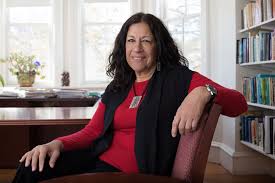 Professor Basu’s talk continues her exploration of the phenomenon of dynastic ties among women who are elected to political office in India, questioning the widely held view that the large numbers of female leaders and Members of Parliament whose family members precede them in office is a residue of tradition, and suggests that it is a product of democratic processes. She also questions the assumption that women’s dynasticism violates principles of democratic representation based on equal opportunities for qualified individuals. Instead, she argues that high levels of women’s dynasticism partially rectifies the historical under-representation of women in political office. Dynasticism is a result of societal prejudices, electoral processes and party biases and structures that have prevented women from attaining political office. While dynasticism accentuates certain forms of privilege, particularly related to social class, it also allows for greater representation of low caste and minority women. Until and unless India introduces legislative quotas for women, dynasticism functions as its surrogate.
Professor Basu’s talk continues her exploration of the phenomenon of dynastic ties among women who are elected to political office in India, questioning the widely held view that the large numbers of female leaders and Members of Parliament whose family members precede them in office is a residue of tradition, and suggests that it is a product of democratic processes. She also questions the assumption that women’s dynasticism violates principles of democratic representation based on equal opportunities for qualified individuals. Instead, she argues that high levels of women’s dynasticism partially rectifies the historical under-representation of women in political office. Dynasticism is a result of societal prejudices, electoral processes and party biases and structures that have prevented women from attaining political office. While dynasticism accentuates certain forms of privilege, particularly related to social class, it also allows for greater representation of low caste and minority women. Until and unless India introduces legislative quotas for women, dynasticism functions as its surrogate.
2017 Joshi Lecture FLYER
2016, April 7 / Ashutosh Varshney, Sol Goldman Professor of International Studies and the Social Sciences at Brown University, "India's Democracy: Electoral Vibrancy, Liberal Deficits" / Konover Auditorium at Dodd Center
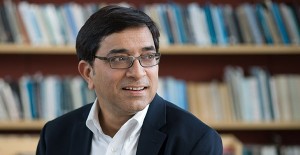 Since 1947, India has forged and consolidated the world's largest democracy in the unlikely setting of low incomes and multiple ethnicities. But the electoral achievements of Indian democracy far outweigh its performance between elections, when basic liberal freedoms come into question and governance deficits accumulate. This year's lecture addressed this paradox, situating India's democratic experience comparatively and theoretically.
Since 1947, India has forged and consolidated the world's largest democracy in the unlikely setting of low incomes and multiple ethnicities. But the electoral achievements of Indian democracy far outweigh its performance between elections, when basic liberal freedoms come into question and governance deficits accumulate. This year's lecture addressed this paradox, situating India's democratic experience comparatively and theoretically.
Ashutosh Varshney is Sol Goldman Professor of International Studies and the Social Sciences at Brown University, where he also directs the Brown-India Initiative. His books include Ethnic Conflict and Civic Life: Hindus and Muslims in India; Democracy, Development and the Countryside: Urban-Rural Struggles in India; India in the Era of Economic Reforms; Midnight's Diaspora; Collective Violence in Indonesia; and Battles Half Won: India's Improbable Democracy (Copies were not available at the lecture because they've been sold out). His academic articles have appeared in the leading journals of political science and development. His honors include the Guggenheim, Carnegie, Luebbert and Lerner awards. He is a contributing editor for Indian Express, and his guest columns have appeared in many other newspapers, including the Financial Times. He served on the UN Secretary General Kofi Annan's Task Force on Millennium Development Goals, and has also served as adviser to the World Bank and United Nations Development Program (UNDP).
2016 JOSHI LECTURE FLYER
2014, December 5 / Nirupama Rao, Former Ambassador of India to the United States and 2013-14 Meera & Vikram Gandhi Fellow at Brown University, "The Politics of History: India and China, 1949-1962" / Laurel Hall Room 101
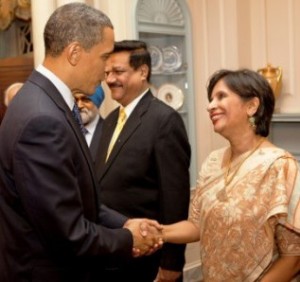
Nirupama Rao assumed her responsibilities as Ambassador of India to the United States in September 2011, a position she held until November 2013. She is currently at Brown University on a Meera and Vikram Gandhi Fellowship. Prior to her appointment as Ambassador, Rao served as Foreign Secretary, the highest office in the Indian Foreign Service, for a two-year term until July 2011.
Rao has served previously in Washington in the capacity of Minister for Press and Cultural Affairs at the Indian Embassy from 1993 to 1995. She has also served in Moscow as Deputy Chief of Mission at her country’s embassy there, in the late nineties. On return to New Delhi, she was designated as Spokesperson of the Ministry of External Affairs in 2001, the first woman Indian Foreign Service officer to hold this post.
Rao joined the Indian Foreign Service in 1973. In a diplomatic career spanning four decades, she served in various world capitals, including Washington, Beijing and Moscow. She acquired extensive experience in India-China relations, having served in the East Asia Division of the Ministry at policy level capacities for several years, and later serving as India’s first woman Ambassador to China from 2006 to 2009. Her other ambassadorial assignments include Peru and Bolivia, and Sri Lanka (where also she was India’s first woman High Commissioner).
2013, November 13 / Miloon Kothari, Martin Luther King Visiting Professor at MIT, "India's Urban Transformation" / Oak Hall Room 101
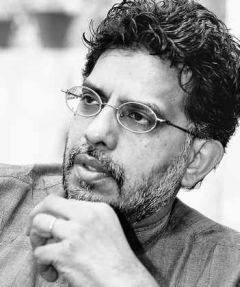 Miloon Kothari, former UN Special Rapporteur on adequate housing and currently Visiting Scholar at the Massachussetts Institute of Technology (MIT), is a leading voice at national, regional and international forums on human rights, especially economic, social and cultural rights. He served (from 2000-2008) as the Special Rapporteur on adequate housing with the United Nations Commission on Human Rights and the Human Rights Council. During his tenure as Special Rapporteur Mr. Kothari led the process that resulted in the United Nations Basic Principles and Guidelines on Development based Evictions and Displacement – the current global operational human rights standard on the practice of forced evictions.
Miloon Kothari, former UN Special Rapporteur on adequate housing and currently Visiting Scholar at the Massachussetts Institute of Technology (MIT), is a leading voice at national, regional and international forums on human rights, especially economic, social and cultural rights. He served (from 2000-2008) as the Special Rapporteur on adequate housing with the United Nations Commission on Human Rights and the Human Rights Council. During his tenure as Special Rapporteur Mr. Kothari led the process that resulted in the United Nations Basic Principles and Guidelines on Development based Evictions and Displacement – the current global operational human rights standard on the practice of forced evictions.
An architect by training, Mr. Kothari is the founder and former coordinator of the South Asian Regional Programme of the Habitat International Coalition’s Housing and Land Rights Network (HLRN). In recent years, he has been particularly active on issues such as Women’s rights to land, inheritance, property, housing and globalization, trade liberalization and its impact on human rights and the UPR. Since 2009, Mr. Kothari has contributed significantly, as founding member and convener (from 2009-2013) to the Working Group on Human Rights in India and the UN (WGHR), a national alliance that is particularly active on the UPR. He has recently been elected President of UPR Info.
